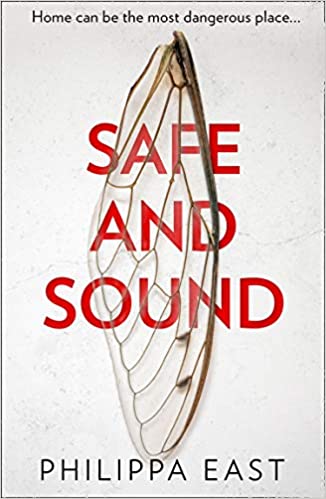In a small London bedsit, a radio is playing. A small dining table is set for three, and curled up on the sofa is a body…
Jenn is the one who discovers the woman, along with the bailiffs. All indications suggest that the tenant – Sarah Jones – was pretty, charismatic and full of life.
So how is it possible that her body has lain undiscovered for ten whole months?
Comment: I got this book because of a deal. I've subscribed to receive notifications at a site to let me know about ebook deals, on the genres I chose, and this was one of them some years ago. I've finally decided to read it since it also would fit one of the topics of a challenge I'm doing in one of my GR groups.
In this story we meet protagonist Jennifer Arden, who works for a housing association of some sort, and one day she and two bailiffs are going to try to speak to a tenant who has not paid her rent in three months and whom she could not contact. The problem is that when they get there, they can hear a radio playing inside but no one opens the door and when they force it open, they discover a dead person inside. What unravels is an investigation into what happened and how, and is the victim the tenant? Was she murdered? Jennifer has had some issues of her own in the past, she is also a single mother worried for her son and all this isn't something she can't seem to let go. Jennifer feels she needs to investigate but what she will find will bring her peace of mind or even more problems?
I think this was a competent enough psychological thriller. I say this in the sense that we are aware something odd has happened but it isn't that clear what and how. The narrator is Jennifer and she seems to have returned to work after personal issues which we don't fully learn until the final part of the book, but what is slowly revealed made for an interesting read for me. However, I can understand those who thought this would be grittier or that would encompass a crime investigation in a more traditional road and were, therefore, disappointed.
I admit I had no specific expectations, I was just curious about the initial mystery about the woman inside her apartment with the radio playing. The story is about this, but it is also about Jennifer and how easy it can be for someone to sort of obsess about a situation or how that affects one's personal life. I think this juxtaposition was credible and the author did a good effort, but it is also true that there were times Jennifer's investigations seemed a little unlikely: or she would obsess and more method should go into it, or some things seem out of place, as if what does she have to do with it?
I'd say that for me this worked out because I don't mind stories that don't really have a crime or a police investigation. I see where the setup here would be perfect for it, but then I've read the notes at the end of the book and this story made more sense. The thing is, the author wrote this story based on a real life situation of a young British woman found in her house and she had been dead for a few years already and no one thought about noticing she was missing. Usually, one links this situation to older isolated people, so this case shocked the community. I don't think ms East wanted to write the story of this real life person, but the premise and a few details have been clearly inspired by it. (Now I'm also interested in seeing the documentary, if I ever find it on TV).
The majority of the story is about Jennifer trying to discover who the dead woman was, who were the people who knew her, and an obvious message here is that we can live among countless others, there are buildings with many neighbors but everyone is still a stranger. Of course, we also have the fictional elements related to Jennifer and her own problems to distract us, and it is true a few things seemed a little "orchestrated" and were hard to accept someone like Jennifer could accomplish specific tasks without the police, but... well.
As things reach the end and the explanations come forward, I must say a few are, again, hard to accept, but looking at the real life inspiration and the multitude of what humans can think and can do, it's not that unlikely. I guess the issue is how the information was given, through Jennifer's actions. The execution of this could have been better and having the story in first person makes Jennifer an unreliable narrator for obvious plot reasons, but then there are elements that would be better shared if the narration had been third person.

No comments:
Post a Comment